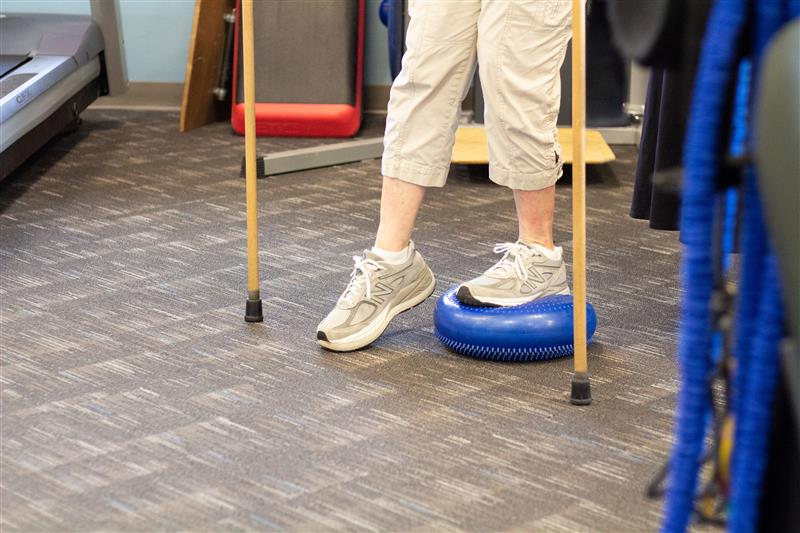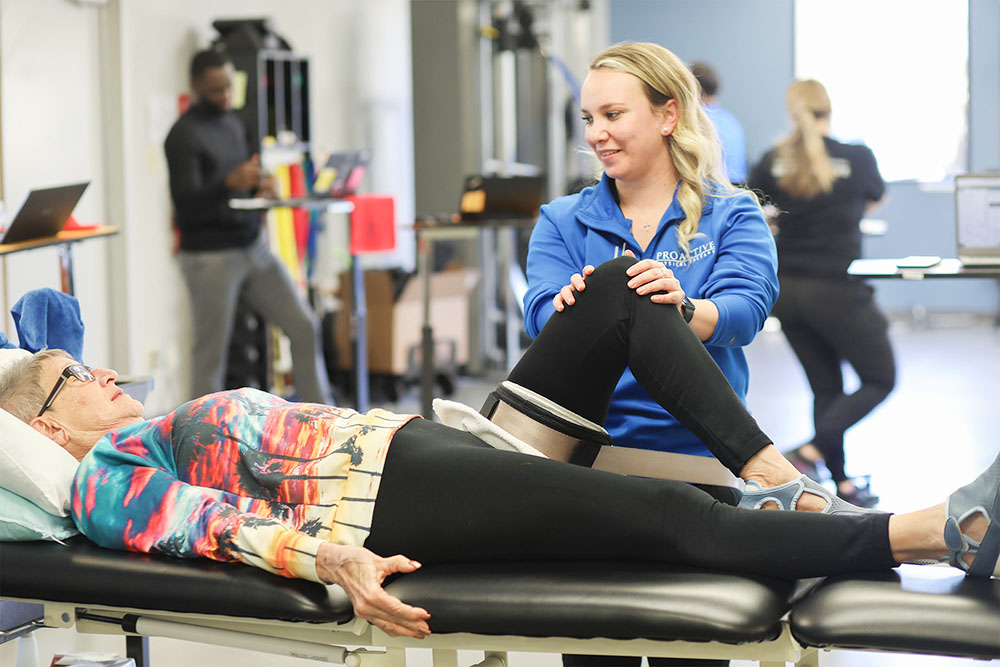According to the National Sleep Foundation, studies have shown how brain activity supports our long-term health by getting rid of toxic material from the fluid surrounding our brains. Lack of sleep damages our neurons’ ability to communicate appropriately, leads to memory impairment over time, alters our mood and energy, and prevents the body from healing physically and mentally. As movement experts, we believe that understanding the importance of sleep for recovery and the series of cycles that enable rest, is vital to our patient’s health and rehab outcomes.
Hormones Concerning Injury Recovery
Have you ever noticed that you feel more productive and awake at certain times of day than at other times when you feel more tired? This is due to your circadian rhythm (internal clock) and hormones associated with sleep. During waking hours, hormones are constantly released to address the needs of the body’s current situation. As the day goes on and energy is depleted, hormones start to become unbalanced. Once you’re able to go to sleep at night, your body gets a chance to balance out these hormones again. Some of the main hormones that affect injury recovery and prevention are Human Growth Hormone (HGH), Cortisol, Ghrelin, and Leptin.
Human Growth Hormone
Human Growth Hormone (HGH) builds and repairs many tissues in the body. After an injury, the damaged tissues need extra time and sufficient levels of HGH in order to repair and heal themselves. When a person does not get the right amount of sleep, they do not reach the proper HGH levels to adequately repair damaged tissues, thus prolonging the healing time.
Cortisol
Cortisol exhibits circadian rhythmicity. Levels rise rapidly in the middle of the night and peak again in the morning. Cortisol is directly related to stress levels. The more cortisol is present in the body, the higher the level of stress that is being placed on the body. High levels of cortisol are linked to weight gain, decreased energy levels, anxiety, depression, and increased blood pressure. When proper sleep occurs, cortisol levels decrease. This allows our bodies to properly manage weight, increase energy levels for the next day, keep blood pressure at healthy levels, and have more positive moods. For individuals going through the recovery process after an injury, these are important factors in ensuring the best recovery outcomes.
Leptin and Ghrelin
Leptin is the hormone that tells the body it has had enough food and Ghrelin is the opposite, telling the body that it is hungry. When people get insufficient sleep, Leptin levels are decreased and Ghrelin levels are increased. This causes a person to have an increased appetite, leading them to eat more, which leads to increased weight gain. Weight gain can add increased pressure on weight-bearing joints, making the healing of ankles, knees, hips, and the lower back even harder. Increased weight gain can also cause many other negative effects on the systems of the body.
During times of injury recovery, people already have a difficult time maintaining an ideal weight due to limited activity from their injury. By adding poor sleep habits, weight gain becomes even harder to control.
How many hours of sleep should you be getting?
So how many hours of sleep should you be getting at night? Each individual is a little different, but a good rule of thumb is 7-10 hours for teens and 7-9 hours for adults to ensure proper time for body healing. It is also important to make these consecutive hours with no interruptions in sleep.
10 Tips to Ensure a Full Night’s Sleep
1. Use light to work in your favor.
Natural or bright light during the day will help your circadian rhythm keep you energized. At night, turn off the lights; avoid blue lights from screens (tablets, phones, etc.), and reserve your bed for nothing other than sleep.
2. Try a white noise machine.
White noise refers to a noise that contains all frequencies across the spectrum of audible sound in equal measure. Studies have proved that it reduces crying in infants, improves work performance, and positively affects sleep.
3. Avoid eating directly before bed.
4. Avoid caffeine or other stimulants 4-6 hours before sleep.
5. When sleeping on your back, place a pillow under the knees to take the pressure off your low back.
6. When sleeping on your side, place a pillow between the knees to keep the hips level and hug a pillow to the chest to keep shoulders properly aligned.
7. Sleep with one pillow under your head to prevent neck injury.
8. Use pain management methods before bed, such as heat, ice, stretches, breathing techniques, or prescribed pain meds to limit pain while sleeping.
9. Go to bed and wake up at the same time every day to maintain a consistent sleep routine.
10. Keep the temperature in your bedroom at or below 70 degrees F. Studies show that the optimal room temperature for sleep is quite cool – between 60 to 68 degrees F.
If you’re concerned that an injury or pain is impacting the quality of your sleep, schedule a free injury assessment with a physical therapist. Methods such as different pain-relieving modalities, soft tissue mobilization, bracing and splinting, taping, and pharmaceutical options may offer you improvements in sleep and aid in your efforts to get through your injury recovery period.






